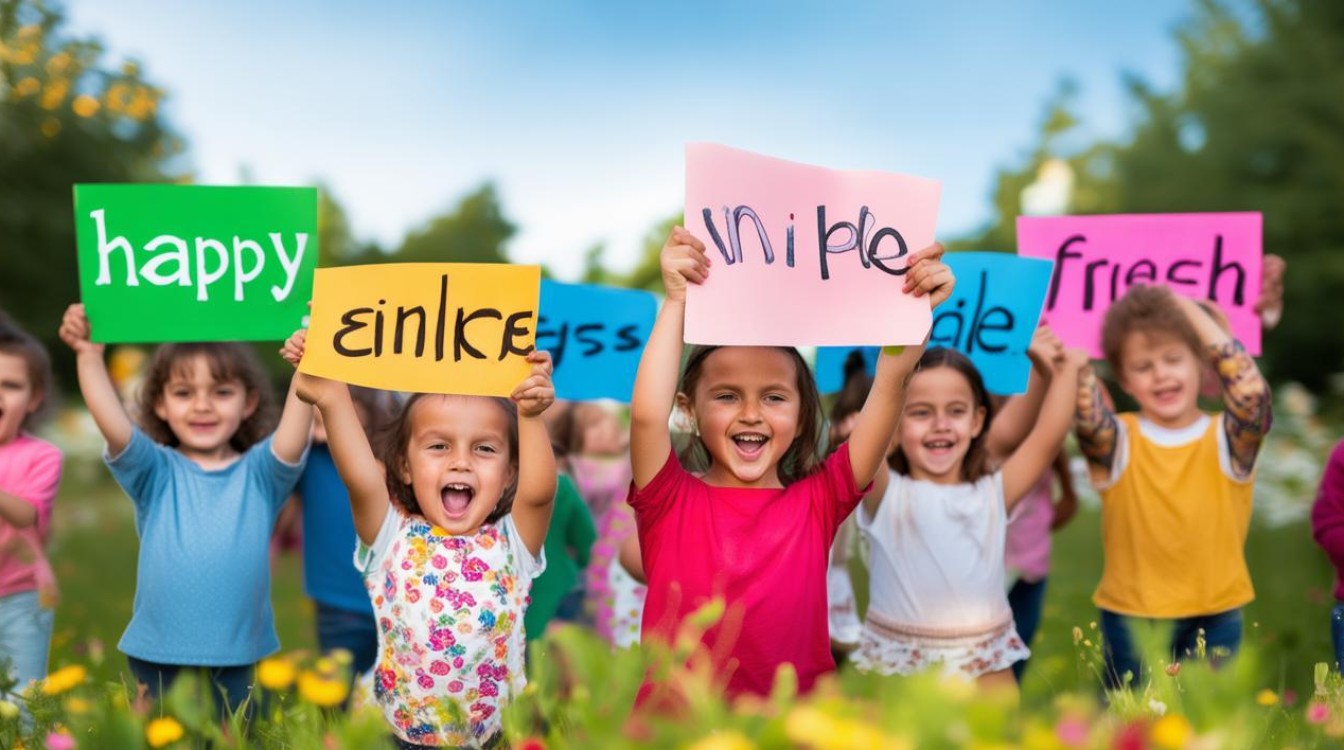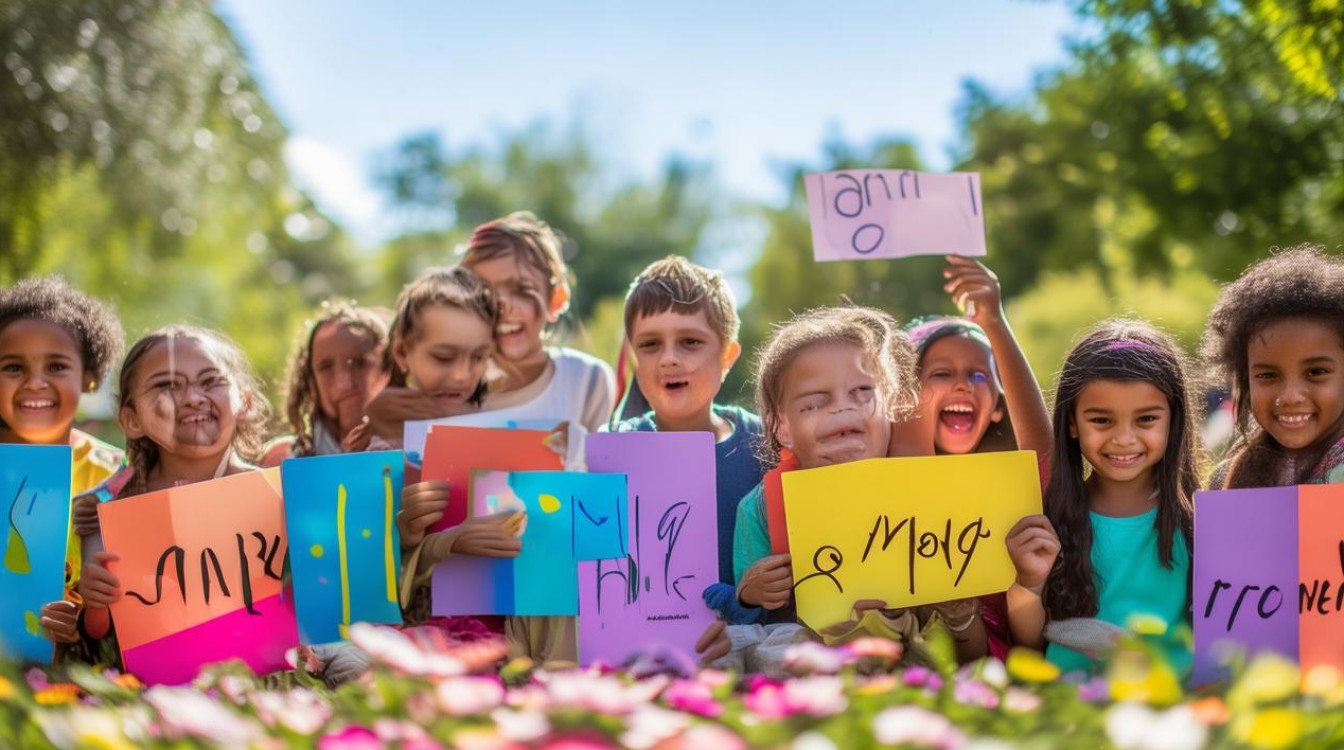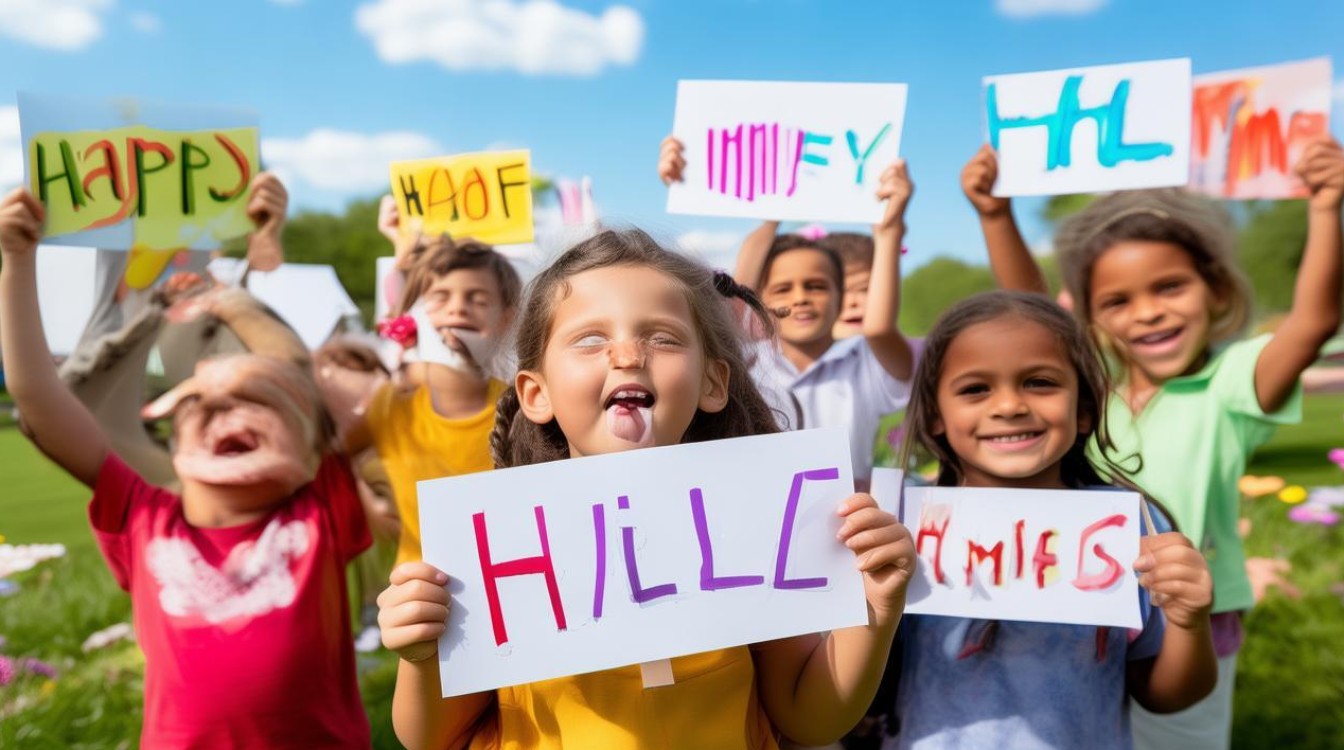International Children's Day, observed on June 1st in many countries, is a joyful occasion dedicated to celebrating childhood and promoting children's rights. Whether you're a parent, teacher, or simply interested in cultural events, learning related English vocabulary can enhance your understanding and appreciation of this special day. Below is a carefully curated list of key terms, phrases, and expressions to help you engage with the festivities in English.

Core Vocabulary for Children's Day
- Children's Day – The official name of the celebration in English.
- Childhood – The period of being a child, often associated with innocence and play.
- Celebration – The act of marking a special event with festivities.
- Joy – A feeling of great happiness, central to Children's Day events.
- Playtime – Time dedicated to games and recreational activities.
- Gifts – Presents given to children as part of the celebration.
- Balloons – Colorful inflatable decorations popular at children’s parties.
- Candy / Sweets – Treats often distributed during celebrations.
- Games – Organized activities for entertainment, such as tag or hide-and-seek.
- Laughter – The sound of children enjoying themselves.
Educational and Developmental Terms
Children's Day isn't just about fun—it also highlights the importance of education and growth. Here are some relevant words:
- Learning – The process of acquiring knowledge and skills.
- Creativity – Encouraging imaginative thinking in children.
- Curiosity – A natural desire to explore and ask questions.
- Kindness – Teaching children to be compassionate and considerate.
- Friendship – The bond between peers, often celebrated in schools.
- Storytelling – Sharing tales to inspire and educate young minds.
- Art and Crafts – Hands-on activities that develop fine motor skills.
- Music and Dance – Expressive arts that bring joy and rhythm to celebrations.
- Outdoor Activities – Sports and play that encourage physical health.
- Imagination – The ability to form new ideas and scenarios.
Rights and Advocacy
International Children's Day also emphasizes children's rights. Key terms include:
- Rights of the Child – Fundamental entitlements recognized globally.
- Protection – Safeguarding children from harm and exploitation.
- Education Access – Ensuring every child can attend school.
- Healthcare – Medical services essential for a child’s well-being.
- Equality – Fair treatment regardless of gender, race, or background.
- Safety – A secure environment for children to grow and thrive.
- Advocacy – Efforts to promote and defend children’s rights.
- UNICEF – The United Nations agency dedicated to children’s welfare.
- Awareness – Spreading knowledge about issues affecting children.
- Support – Providing resources and care for children in need.
Festive Expressions and Phrases
If you're attending or organizing a Children's Day event, these phrases may be useful:

- Happy Children's Day! – A common greeting for the occasion.
- Let’s play together! – Encouraging group participation.
- You’re special! – Boosting a child’s self-esteem.
- What’s your favorite game? – Engaging children in conversation.
- Time for fun! – Announcing the start of activities.
- Be kind to others. – Reinforcing positive behavior.
- Dream big! – Inspiring children to aspire.
- Let’s learn something new! – Combining education with celebration.
- Share your toys. – Teaching generosity.
- You did great! – Offering praise and encouragement.
Cultural Variations
Different countries celebrate Children's Day in unique ways. Some related terms:
- Japan (Kodomo no Hi) – Celebrated on May 5th with carp-shaped flags.
- India (Bal Diwas) – Emphasizes education and child welfare.
- Brazil (Dia das Crianças) – Features gifts and family outings.
- Mexico (Día del Niño) – Schools host parties and performances.
- South Korea (Eorininal) – Includes public events and cultural activities.
Practical Usage in Sentences
To help retain these words, here are example sentences:
- "On Children's Day, schools organize games and distribute candy."
- "Parents encourage creativity by providing art supplies."
- "UNICEF works globally to protect the rights of the child."
- "Laughter filled the park as children played with balloons."
- "Teaching kindness is just as important as academic lessons."
Engaging Children in Learning English
If you're a parent or educator, incorporating these words into daily interactions can make language learning enjoyable:

- Word Games – "Can you find something that starts with 'B' like 'balloon'?"
- Story Time – Read books about friendship and adventures.
- Sing-Alongs – Use songs with repetitive vocabulary.
- Flashcards – Visual aids help reinforce new terms.
- Role-Playing – Act out scenarios using key phrases.
International Children's Day is more than just a date on the calendar—it’s a reminder of the joy, potential, and rights of every child. By familiarizing yourself with these English terms, you can better appreciate the significance of the day and perhaps even share the knowledge with young learners. Whether through festive activities, educational discussions, or advocacy, this vocabulary helps bridge language gaps and fosters a deeper connection to the spirit of childhood.
The best way to honor Children's Day is by creating moments of happiness, encouraging curiosity, and ensuring every child feels valued. After all, the future belongs to them, and the words we teach today shape the voices of tomorrow.

